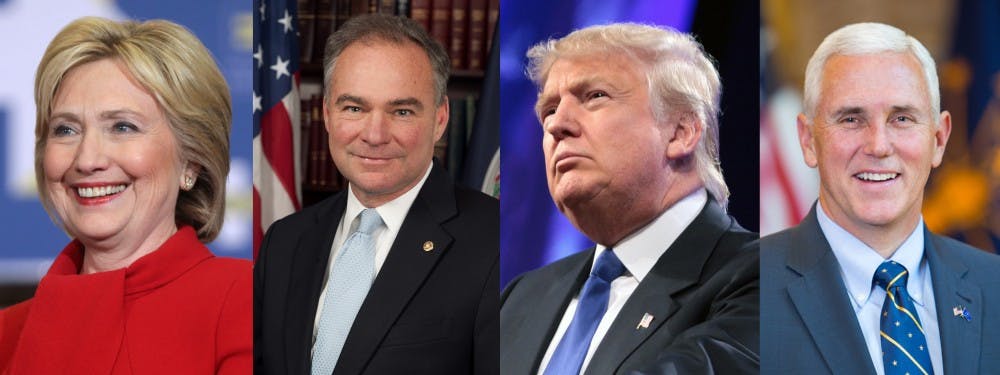Though the presidential and vice presidential debates won’t take place in Charlottesville, the University has been vocal in the election so far. University President Teresa Sullivan sent a statement to the University community Monday encouraging students to vote by citing the leap Thomas Jefferson and his collaborators took in creating our self-government experiment. Meanwhile, the U.Va. Center for Politics joined the National Institute for Civil Disclosure in asking for civility from all parties in the upcoming presidential and vice presidential debates.
“For our students, U.Va. has many organizations that will provide opportunities to discuss and debate the issues leading up to November 8th,” Sullivan said in her email. “I encourage students to engage in these discussions and then to exercise your voting rights this fall. This is your opportunity to help shape the future of your country.”
The Center for Politics, for its part, called on presidential debate moderators to adopt a set of debate standards intended to allow the debates to proceed as fairly and informatively as possible. More than 60 organizations have already agreed to these standards, which even contain guidelines for the audience.
Debates represent one of the best opportunities for voters to make an informed choice on Election Day, Larry Sabato, director of the center, said in a release.
“For a number of reasons the 2016 presidential campaign has not been especially uplifting,” Sabato said. “While it is naive to believe that negative attacks can be banned during the debates, we ought to aim higher and insist that the candidates honestly discuss their many dramatic differences.”
The standards are broken into three separate sections for each party involved with the debates. Those parties then each have five guidelines that the center recommends following during the event.
“I think it is a recognition that this campaign is very different in modern history and we have more negativity in this election,” Politics Prof. Carah Ong Whaley said. “There usually isn’t really a standard of civility or incivility in setting up debating guidelines. With regards to this specific election, it is clear that a lot of people think that civility is a problem and it has generated to where we're at now.”
For candidates the standards are as followed: be respectful of others in speech and behavior, answer the question being asked by the moderator, make ideas and feelings known without disrespecting others, take responsibility for past and present behavior, speech and actions and stand against incivility when faced with it.
University Democrats President Sam Tobin, a fourth-year College student, said he thinks it is important for the Center for Politics to call on such standards due to the organization’s influence and the larger national conversation on how debates should be run.
“The two topics that always arise after the debates are usually how the candidates do as well as what worked and what didn't during the debates,” Tobin said. “I think it is very important that they are thinking about this ahead of time before the debates.”
The standards also highlight five more guidelines for both the moderators of the debates and the people in attendance at these events.
“My personal opinion is that I think the moderators should work hard to make sure that there is no incivility, and if a candidate says something blatantly false, they should be the ones to highlight that,” Tobin said.
Although these guidelines have been set and acknowledged by more than 60 different political organizations, this election may bring a different atmosphere that could hinder the adherence to these standards.
“Especially looking at the vice presidential debate — I don't think it will go to off the rails — but the presidential debates have the potential to get a little more heated whereas the vice presidential one will probably be more like what we are used to seeing,” College Republicans Vice Chair of Campaigns Adam Kimelman, a second-year College student, said.
The presidential debates will be held on Sept. 26 at Hofstra University in Hempstead, N.Y.; Oct. 9 at Washington University in St. Louis, Mo.; and on Oct. 19 at the University of Nevada, Las Vegas. The vice presidential debate will be held at Longwood University in Farmville, Virginia on Oct. 4.







